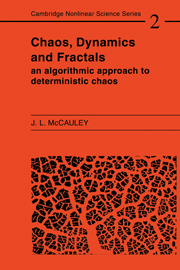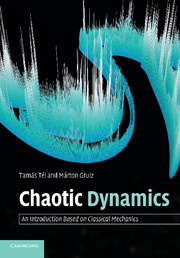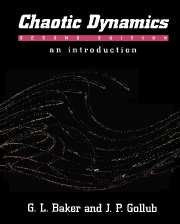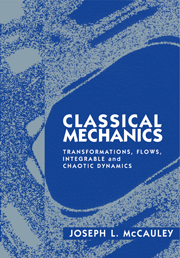Chaos, Dynamics, and Fractals
This book develops deterministic chaos and fractals from the standpoint of iterated maps, but the emphasis makes it very different from all other books in the field. It provides the reader with an introduction to more recent developments, such as weak universality, multifractals, and shadowing, as well as to older subjects like universal critical exponents, devil's staircases and the Farey tree. The author uses a fully discrete method, a 'theoretical computer arithmetic', because finite (but not fixed) precision cannot be avoided in computation or experiment. This leads to a more general formulation in terms of symbolic dynamics and to the idea of weak universality. The connection is made with Turing's ideas of computable numbers and it is explained why the continuum approach leads to predictions that are not necessarily realized in computation or in nature, whereas the discrete approach yields all possible histograms that can be observed or computed.
- Written to provide the reader with an introduction to more recent developments
- An algorithmic approach to deterministic chaos
- Warmly reviewed in hardback
Reviews & endorsements
"McCauley's book takes a novel and, from my point of view, somewhat controversial approach to the study of chaos and fractals. Most treatments of these concepts rely on mathematical ideas to define chaotic behavior and to prove its existence....In this book, however, the focus is different. Since, the author reasons, all numerical computations are inherently finite in precision or resolution, we might as well neglect all effects of infinite precision calculations. He asks how relevant are irrational numbers in this context? How important are phenomena that hold for a set of measure one in a continuum, but which may never hold in a universe where only finite accuracy is possible?...an alternative and highly interesting point of view." Foundations of Physics
"...could be used to teach an excellent course to final-year students. Beginning with the geometric ideas of flows in phase space, it moves on to chaos, and whether the concept of randomness is really needed any more. Substantial space is devoted to conservative (Hamiltonian) systems, and there are unusual chapters on statistical mechanics, symbolic dynamics, intermittency in fluid turbulence, and limits to computation." New Scientist
"This book represents an algorithmic approach to chaos, dynamics and fractals by iterated maps formulated in terms of automata that process digit strings....the method of analysis and choice of emphasis make it very different from all of the others. It is not only an introduction to modern developments in nonlinear dynamics and fractals, but also it offers clear answers to the following questions: How can a deterministic trajectory be unpredictable? How can nonperiodic chaotic trajectories be computed? Is information loss avoidable or necessary in a deterministic system?....The author explains why continuum analysis, computer simulations and experiments form three entirely distinct approaches to chaos theory." Zentralblatt fue Mathematic und ihre Grenzgebiede (Mathematics Abstracts)
"This book provides readers with a fascinating and stimulating discussion of chaos, dynamics and fractals from a standpoint of computation. McCauley's changes of paradigm from continuous to discrete and from infinite resolution to coarse graining state space will keep a reader interested in finding throughout the text the changes of viewpoint from traditional approaches to an algorithmic approach. McCauley's analysis should go a long way toward influencing discussions of the roles of computing in studying dynamics." SIAM Review
"This book has a physics flavour, and is very discursive in its style." Mathematical Reviews
Product details
June 1994Paperback
9780521467476
348 pages
229 × 151 × 18 mm
0.502kg
77 b/w illus.
Available
Table of Contents
- Foreword
- Introduction
- 1. Flows in phase space
- 2. Introduction to deterministic chaos
- 3. Conservative synamical systems
- 4. Fractals and fragmentation in phase space
- 5. The way to chaos by instability of quasiperiodic orbits
- 6. The way to chaos by period doubling
- 7. Multifractals
- 8. Statistical physics on chaotic symbol sequences
- 9. Universal chaotic dynamics
- 10. Intermittence in fluid dynamics
- 11. From flows to automata: chaotic systems as completely deterministic machines
- References
- Index.






